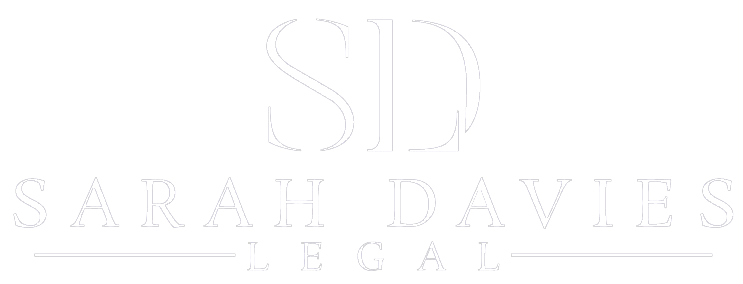Directors Duties 101
It is essential directors are familiar with the legal framework in which they’re operating. A director owes duties to the company as a result of judge-made law, the Corporations Act, the company’s constitution and any employment contract he or she has with the company.
A director assumes a responsibility to act for the benefit of others, and therefore his or her relationship with the company is a fiduciary one. The nature and extent of those fiduciary duties will vary depending on the circumstances of the company and the nature of its business, but they can be onerous. The main duties referred to in the Corporations Act are set out below.
Duty 1 – to exercise reasonable care and diligence
Section 180 of the Corporations Act provides that a director owes a duty to exercise reasonable care and diligence in the performance of his or her duties.
Objective standard: The standard of care expected of a director is to be looked at from an objective point of view. It is to be determined by reference to what a reasonable person of ordinary prudence would do. Points to note:
- certain subjective factors, such as the director’s responsibilities and the type of company, are relevant to a consideration of whether a director has breached his or her duty of care
- directors are expected to have basic financial skills to enable them to interpret the company’s financial records
- a lack of experience and knowledge cannot reduce the duty of care below the minimum objective standard (referred to below), and
- the duty is enhanced where the directorial appointment is based on special skill.
Minimum standards: The statutory requirement of diligence incorporates a minimum standard of competence in reading and understanding financial material, and doesn’t make allowance for the director’s personal inexperience or lack of skill. Whatever particular skills an individual director actually possesses, or inexperience they may suffer from, they’re still accountable to a core irreducible requirement of skill which requires every director to—
- become familiar with the fundamentals of the business of the company
- keep informed about the company’s activities
- monitor the company’s affairs
- maintain familiarity with the financial statements of the company by appropriate means, including review of the company’s financial statements and Board papers, and making further enquiries into matters revealed by those documents where it’s appropriate to do so, and
- have a reasonably informed opinion of the company’s financial capacity, including the obligation to prevent insolvent trading.
Proactive role: The director’s duty of care involves becoming familiar with the business of the company and how it’s run, and ensuring the Board has available means to audit the management of the company so it can satisfy itself that the company is being properly run. It is not acceptable for a director to take a passive role in the company’s affairs. An individual should not accept a directorship unless they have the appropriate skills, competence and time to perform the role.
Areas of expertise: Directors are not able to avoid liability by simply focusing their attention on their particular area of expertise. If they suspect irregularity in the company’s financial affairs, they are not entitled to ignore it and leave it to the financial expert on the Board. If a director possesses a particular skill or expertise in an area, it may well be the case that a higher standard of care will be expected of him or her. Each director is not expected to have equal knowledge and experience of every aspect of the company’s activities, given the highly-diversified activities of large and complex companies. The duty of care will therefore vary according to the size and business of a particular company.
Managing directors: A managing director may be expected to be more diligent than other Board members, and to take steps to inform the other Board members of unusual transactions.
Non-executive directors: Non-executive directors are not subject to the same higher standard as executive directors and they’re not bound to give continuous attention to the affairs of the company. However, non-executive directors have been found to be in breach of the duty of care in failing to exercise their oversight role on the Board. The reality is that for large companies, management is delegated in large measure to its executive officers. That delegation is generally sanctioned by the law as long as the non-executive directors act reasonably and in good faith, after making an independent assessment of the information supplied to them by the executive officers.
Board meetings: Directors are expected to attend all Board meetings unless there are unusual circumstances, such as illness or absence from the State. The Board is required to meet as often as is necessary to properly carry out its functions. The responsibility of directors require that they take reasonable steps to place themselves in a position to guide and monitor the management of the company. The Board should meet as often as it deems necessary to carry out its function properly. It’s not a matter of tailoring the extent of the duty or functions to pre-fixed intervals between Board meetings.
Supervision: Directors are required to supervise those to whom they have delegated authority. They’re expected to take an intelligent and diligent interest in the information provided to them, and to demand information they think is relevant. Directors are not permitted to simply rely upon the judgment of others, particularly in regard to high risk transactions.
Entrepreneurial activities: The provisions of the Corporations Act are not intended to dampen business enterprise and penalise legitimate but unsuccessful entrepreneurial activities. Accordingly, the question whether a director has exercised a reasonable degree of care and diligence can only be answered by balancing the foreseeable risk of harm against the potential benefits that could reasonably have been expected to accrue to the company from the conduct in question.
Managing risks: In assessing what a reasonable person would do in the position of the director in response to a given risk, the court needs to consider the magnitude of the risk and the degree of the probability of its occurrence, along with the expense, difficulty and inconvenience of taking alleviating action and any other conflicting responsibilities the director may have.
Business judgment rule
Directors won’t be found to be in breach of section 180 if they meet the requirements of the business judgment defence. The director would need to show the following:
- The judgment is made in good faith for a proper purpose.
- The director doesn’t have a material personal interest in the subject matter of the judgment.
- The director informs himself or herself about the subject matter of the judgment to the extent they reasonably believe to be appropriate.
- The director rationally believes the judgment is in the best interests of the company. The director’s belief is a rational one unless the belief is one that no reasonable person in his or her position would hold. The reasonableness of the belief should be assessed by reference to:
the importance of the business judgment to be made
the time available for obtaining information
the costs related to obtaining information
the director’s confidence in those exploring the matter
the state of the company’s business at that time and the nature of the competing demands on the Board’s attention, and
whether or not material information is reasonably available to the director.
In considering the requirement that the directors have a rational belief as to the best interests of the company, the court has found the requirement is satisfied if the evidence shows the director believed his or her judgment was in the best interests of the company, and that belief was supported by a reasoning process sufficient to warrant describing it as a rational belief, as defined, whether or not the reasoning process is objectively a convincing one. This is an important conclusion, and highlights the importance of directors recording the thought process involved in making various decisions either in the Board papers or the minutes in case the decision is later called into question and they need to rely upon the business judgment rule.
Duty 2 – to act in good faith
Section 181 of the Corporations Act provides that a director owes a duty to act in good faith in the best interests of the company and for a proper purpose.
Objective standard: The duty is very wide and is intended to cover a number of different situations.
The standard of care expected of a director in relation to the duty of good faith is looked at from an objective point of view. Therefore, the duty will be breached if a director acts in a way that no reasonable director could have considered to be in the best interests of the company. However, certain subjective factors can also be considered for the purpose of putting the conduct in context.
Requirements: It’s not sufficient to simply show the director had good intentions and was not motivated by self-interest. The duty of good faith requires a Director to:
- act honestly
- exercise his or her powers in the interests of the company, and
- avoid conflicts of interest.
Exercise judgment: A director won’t be in breach of this duty if he or she makes a genuine decision about an issue, but later finds out additional facts that would have influenced that decision. However, directors are required to exercise proper judgment regarding matters relating to the company’s business and to take steps to ensure they’re adequately informed about the issues. Furthermore, a director may breach the duty even if they honestly believe their actions are in the best interests of the company as a whole.
Interests of third parties: Directors breach their duty of good faith if they act in the interests of a third party without considering the interests of the company. In one case, the court had to consider an issue where a company had sold its business and the directors had resolved to distribute the proceeds of sale to the redundant employees. As the company no longer intended to carry on business, there was no benefit to it by way of improved industrial relations. The court restrained the company from making the payment on the basis that it wasn’t in its best interest to do so.
Positive action: A director is required to take positive action to protect the company and is not entitled to be passive if he or she is aware of circumstances that will be detrimental to the company’s interests. In those circumstances, a director might be required to bring the circumstances to the attention of the Board and
make recommendations about the steps that should be taken to minimise the risk of harm to the company. For example, in one case, a director was found to have breached his duty because he should have taken positive steps to prevent the company from lending money to another company of which he was a director and which he knew would be unable to repay the loan.
Duty 3 – to avoid an improper use of position
Section 182 of the Corporations Act provides that a director owes a duty not to improperly use their position to gain an advantage for themselves or someone else or cause detriment to the company.
Private benefit: This duty encompasses the obligation to ensure the director doesn’t take advantage of his or her position in order to obtain a private benefit.
Good faith: The duty to avoid an improper use of position isn’t limited to deliberate impropriety on the part of a director. A director may act improperly without intending to act dishonestly or with bad faith.
Standard: Impropriety consists of a breach of the standards of conduct that would be expected of a person in the position of the director by a reasonable person who understands the duties owed by a director and is aware of the facts of the case.
Substantial purpose: Whether the director has breached this duty depends on whether or not the director’s substantial purpose in causing the company to enter the transaction was improper or collateral to his or her duty as a director. The director’s intention and purpose is relevant.
Actual gain: It isn’t necessary to prove the director actually gained an advantage or the company suffered a detriment. The amount of the gain isn’t relevant and it doesn’t have to be money. In one case, a director ensured invoices from a business associated with him were not checked on behalf of the company before they were paid. The court found this constituted an improper use of the director’s position to secure an advantage to the associated business, even though the invoices may have been paid in any event.
Public companies: A director of a public company is required by the Corporations Act to disclose material personal interests.
Duty 4 – to avoid misuse of information
Section 183 of the Corporations Act provides that a director who obtains information because of his or her position must not improperly use the information to gain an advantage for themselves or someone else or cause detriment to the company.
Competition: There is no general duty not to compete with the company. In some circumstances, a person may be a director of two competing companies, provided he or she doesn’t use any confidential information to improperly advantage one of the companies.
Post-resignation: The duty remains in force even after a director has resigned from the company. The duty doesn’t just cover confidential information but also any information the director has acquired because of his or her position in the company.
Please contact us if you have any questions in relation to directors’ duties. We can provide specialised legal advice in relation to directors’ duties and corporate governance issues.
Sarah Davies
Director
Sarah Davies Legal
Accredited Specialist – Commercial Litigation
This article is produced as general information in summary for clients and should not be relied upon as a substitute for detailed legal advice or as a basis for formulating business or other decisions. Formal legal advice should be sought in relation to particular matters. Sarah Davies Legal Pty Ltd asserts copyright over the contents of this document.




